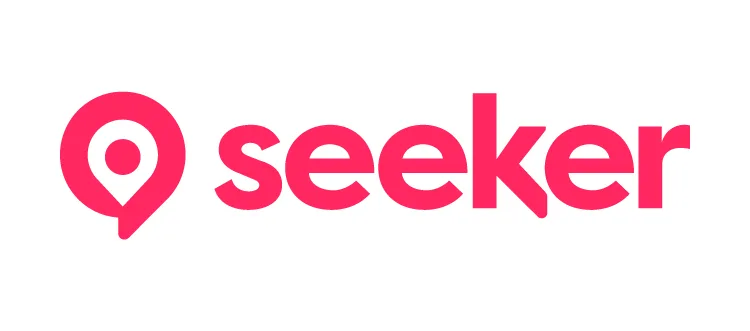Imagine having a community events calendar that’s not only a tool but a vibrant resource that everyone in your community loves to use. That’s the dream, right? For destination marketers and community managers, the question is how to make that dream a reality. The good news is that structuring your calendar with well-organized categories can make all the difference. In this guide, we’re going to walk you through everything you need to know to set up a community events calendar that is both user-friendly and optimized for search engines.
What is a Community Events Calendar?
Let’s start with the basics. A community events calendar is a digital listing of all events happening in a community. It serves as a central hub where people can find out what’s going on around them, from small neighborhood gatherings to large festivals. For destination marketers and event managers, this tool is essential for promoting events and engaging with the community.
Community events calendars are more than just listings. They’re the heartbeat of your community, keeping everyone informed and connected. When done right, they can boost attendance at events, increase community involvement, and even boost local tourism and/or membership. But to get the most out of your calendar, it’s crucial to structure it effectively, and that’s where categories come into play.
By organizing events into categories, you make it easier for people to find what they’re looking for. Categories help users quickly scan the calendar and identify events that interest them. They also improve the overall usability of the calendar, making it more likely that people will return to use it again and again.
Why Use Categories in Your Events Calendar?
Categories are the backbone of any well-organized community events calendar. They provide structure, making it easier for users to find events that match their interests. Think of categories as the sections of a library. Without them, finding the right book would be chaos!
For destination marketers, event organizers and community managers, categories offer several benefits. First, they enhance the user experience by allowing visitors to quickly filter events and find what they’re interested in. This is particularly important in a busy community where there may be dozens, if not hundreds, of events happening at any given time.
Secondly, categories improve search engine optimization (SEO). When events are organized into well-defined categories, search engines can more easily index the content. This means that when someone searches for “music events near me,” your calendar is more likely to pop up in the search results. In other words, categories are a win-win for both users and search engines.
In addition, categories provide valuable insights into what types of events are most popular within your community. By analyzing the categories that receive the most clicks or engagement, you can tailor your event marketing strategies to align with community interests. This data-driven approach can lead to more successful events and a more engaged community.
Finally, your categorical structure reflects the type of community you represent. For example, highlighting categories like LGBTQ+ friendly or sustainable gives viewers insight into your values and what your community stands for.
What Types of Categories Should You Use?
Now that we’ve established the importance of categories, let’s explore what types you should consider using. The key is to strike a balance between being specific enough to be useful and broad enough to cover a wide range of events. Here are some popular category ideas to get you started:
1. Entertainment and Arts
These categories could include music, theater, visual arts, and dance events. People love attending concerts, plays, art exhibitions, and dance performances. By having these categories, you cater to a wide variety of artistic tastes.
2. Food and Drink
From food festivals to wine tastings, food and drink events are always a hit. They offer a great opportunity for people to socialize while enjoying delicious treats. Make sure to include categories for different cuisines and types of beverages to appeal to diverse tastes.
3. Family and Kids
Family-friendly events are crucial for attracting parents and children. Consider categories like children’s theater, family fun days, and educational workshops for kids. These categories make it easy for families to find suitable events.
4. Sports and Outdoors
For the active members of your community, sports and outdoor event categories are a must. Think marathons, yoga classes, hiking excursions, and team sports tournaments. These categories encourage people to get active and enjoy the great outdoors.
5. Workshops and Classes
Educational events are perfect for those looking to learn new skills or hobbies. Create categories for different types of workshops, such as cooking classes, photography tutorials, and language courses. This way, users can easily find opportunities to expand their knowledge.
6. Networking and Business
Networking events and business meetups are essential for professionals looking to connect with others in their industry. Categories like conferences, seminars, and networking nights can help professionals find opportunities to grow their networks.
These are just a few examples, but the possibilities are endless. Tailor your categories to match the unique interests and demographics of your community. By doing so, you’ll create a calendar that’s both useful and engaging for everyone.
Comprehensive List of 90+ Event Categories to Include on Your Calendar
To help you get started, here’s a comprehensive list of 90+ event categories you can include on your community events calendar. Feel free to mix and match or add your own unique categories to suit your community’s needs.
Event Formats
These categories are generic classifications for different types of event formats that can apply across various industries, communities, and organizational settings.
-
Festivals
-
Workshops
-
Fairs
-
Classes
-
Conferences
-
Seminars
-
Sports
-
Networking
-
Fundraisers
-
Meetups
-
Performances
-
Parties
-
Exhibitions
-
Retreats
-
Tours
-
Socials
-
Competitions
-
Rallies
-
Community
-
Parades
-
Trade Shows
-
Charity
-
Civic
-
Classes and Training
-
Outdoor Activities
-
Virtual
-
In-person
Thematic Events
This category includes artistic, creative, and learning events that don’t fall into any other specialized category.
-
Music & Concerts
-
Art Exhibitions
-
Theater Performances
-
Dance Shows
-
Film Screenings
-
Literary
-
Photography
-
Language Courses
-
Tech Meetups
-
Arts and Crafts
-
Interior Design
-
Wine and Paint
-
DIY Workshops
-
Fashion Shows
-
Home Improvement
-
Science Fairs
-
Astronomy
-
Poetry Readings
-
Author Readings
-
Genealogy
-
Calligraphy
-
Pottery
Culinary Events
All food and drink-related events including tastings, classes, and festivals
-
Food Festivals
-
Wine Tastings
-
Craft Beer
-
Cooking Classes
-
Farmers’ Markets
-
Food Trucks
-
Community Picnics
-
Culinary Tours
-
Baking Workshops
-
Cheese Tasting
-
Chocolate Making
-
International Cuisine
-
Vegan Food Festivals
-
Barbecue Competitions
-
Coffee Tastings
Fitness & Wellness
Events related to physical fitness, mental wellness, and overall health
-
Marathons and Fun Runs
-
Yoga Classes
-
Hiking Excursions
-
Team Sports Tournaments
-
Fitness Bootcamps
-
Health and Wellness Expos
-
Meditation Retreats
-
Spiritual Workshops
-
Pilates Classes
-
Zumba Sessions
-
CrossFit Competitions
-
Tai Chi Classes
-
Wellness Retreats
-
Breathwork Workshops
-
Nature Walks
Family & Kids
Events specifically designed for families and children
-
Family Fun Days
-
Children’s Theater
-
Educational Workshops for Kids
-
Puppet Shows
-
Storytelling Sessions
-
Kids’ Craft Workshops
-
Science Experiments for Kids
-
Magic Shows
-
Petting Zoos
-
Treasure Hunts
-
Lego Building Events
-
Kite Flying Festivals
-
Inflatable Playgrounds
-
Costume Parties
-
Junior Chef Classes
Professional Development
Events that focus on career growth, professional networking, and education
-
Career Fairs
-
Industry Conferences
-
Business Seminars
-
Networking Events
-
Leadership Training
-
Financial Planning Seminars
-
Marketing Workshops
-
Coding Bootcamps
-
Sales Training Sessions
-
Entrepreneurship Panels
-
Public Speaking Workshops
-
Legal Clinics
-
HR Workshops
-
Environmental Policy Seminars
Community Engagement & Cultural
Events that foster community connections, celebrate different cultures, and promote local engagement
-
Cultural Festivals
-
Heritage Celebrations
-
Public Lectures
-
Historical Tours
-
Religious Services
-
Community Cleanups
-
Block Parties
-
Flea Markets
-
Charity Fundraisers
-
Volunteer Opportunities
-
Sustainability Workshops
-
Book Clubs
-
Cultural Exchange Programs
-
Community Gardens
-
Library Events
Seasonal & Special Events
These are events tied to specific seasons, holidays, and unique occasions
-
Seasonal Festivals
-
Parades
-
Fireworks Displays
-
Holiday Markets
-
Park Concerts
-
Seasonal Craft Fairs
-
Harvest
-
Winter Wonderland
-
Spring
-
Summer
-
Fall Foliage
-
Halloween Haunted
-
New Year’s Eve
-
Valentine’s Day
Entertainment & Leisure
Casual and fun events for entertainment, socialization, and relaxation
-
Trivia Nights
-
Escape Rooms
-
Murder Mystery Dinners
-
Game Tournaments
-
Pet Shows
-
Dog Training Classes
-
Animal Adoption Events
-
Comedy Shows
-
Karaoke Nights
-
Board Game Cafes
-
Skate Nights
-
Outdoor Movie Nights
-
Music Jams
-
Open Mic Nights
-
Paintball Events
Sustainability & Environment
Events focused on sustainability, eco-friendly practices, and environmental activism
-
Eco-Friendly Workshops
-
Green Living Seminars
-
Sustainability Conferences
-
Zero Waste Events
-
Climate Change Panels
-
Renewable Energy Fairs
-
Organic Farming Tours
-
Wildlife Conservation Talks
-
Upcycling Workshops
-
Environmental Art Projects
-
Beach Cleanups
Inclusivity
This category focuses on events that promote diversity, inclusivity, and LGBTQ+ advocacy
-
Pride
-
LGBTQIA+
-
Social Justice
-
Inclusivity Workshops
-
Drag Shows
-
Diversity and Inclusion Panels
-
Accessible
-
Sensory-Friendly
-
Multilingual
Social Impact & Activism
Events focused on social justice, activism, and creating positive community change
-
Community Activism
-
Social Justice
-
Human Rights
-
Volunteer
-
Non-Profit
-
Advocacy Training
-
Peace Rallies
-
Social Entrepreneurship
-
Philanthropy
Virtual Events
Events that take place online or have a virtual component
-
Virtual Workshops
-
Webinars
-
Online Classes
-
Virtual Networking Events
-
Virtual Happy Hours
-
Live Streaming
Outdoor & Nature
Events that involve outdoor activities, nature exploration, and environmental connection
-
Hikes
-
Camping
-
Fishing
-
Birdwatching
-
Nature Photography
-
Botanical Gardens
-
Wildlife Watching
Civic
Events involving local politics and community engagement
-
Town Hall Meetings
-
Public Forums
-
Ribbon Cuttings
-
Grand Openings
-
Voter Registration
-
City Council
-
Board Meetings
-
Public Hearings
These categories cover a broad range of interests and activities, providing a diverse selection of events for any community or individual to enjoy.
Remember, these categories are just a starting point. Feel free to customize them or create new ones that cater specifically to the interests and needs of your community. By offering a diverse range of categories, you’ll ensure that your community events calendar remains a go-to resource for everyone.
Creating a user-friendly and SEO-optimized community events calendar is all about smart categorization. By organizing events into well-thought-out categories, you make it easier for users to find what they’re looking for, improve your calendar’s search engine rankings, and gain valuable insights into community interests.
For destination marketers and event managers, a well-structured calendar can become an invaluable tool for boosting event attendance, website traffic and community engagement. By following the tips and category suggestions in this guide, you can create a calendar that’s not just a list of events but a vibrant hub of community activity.
Now it’s your turn to put these insights into action. Start by reviewing your current calendar and identifying areas for improvement. Experiment with different categories and see what resonates with your audience. And remember, the more user-friendly and organized your calendar is, the more likely people will return to it time and time again.
Happy planning!


